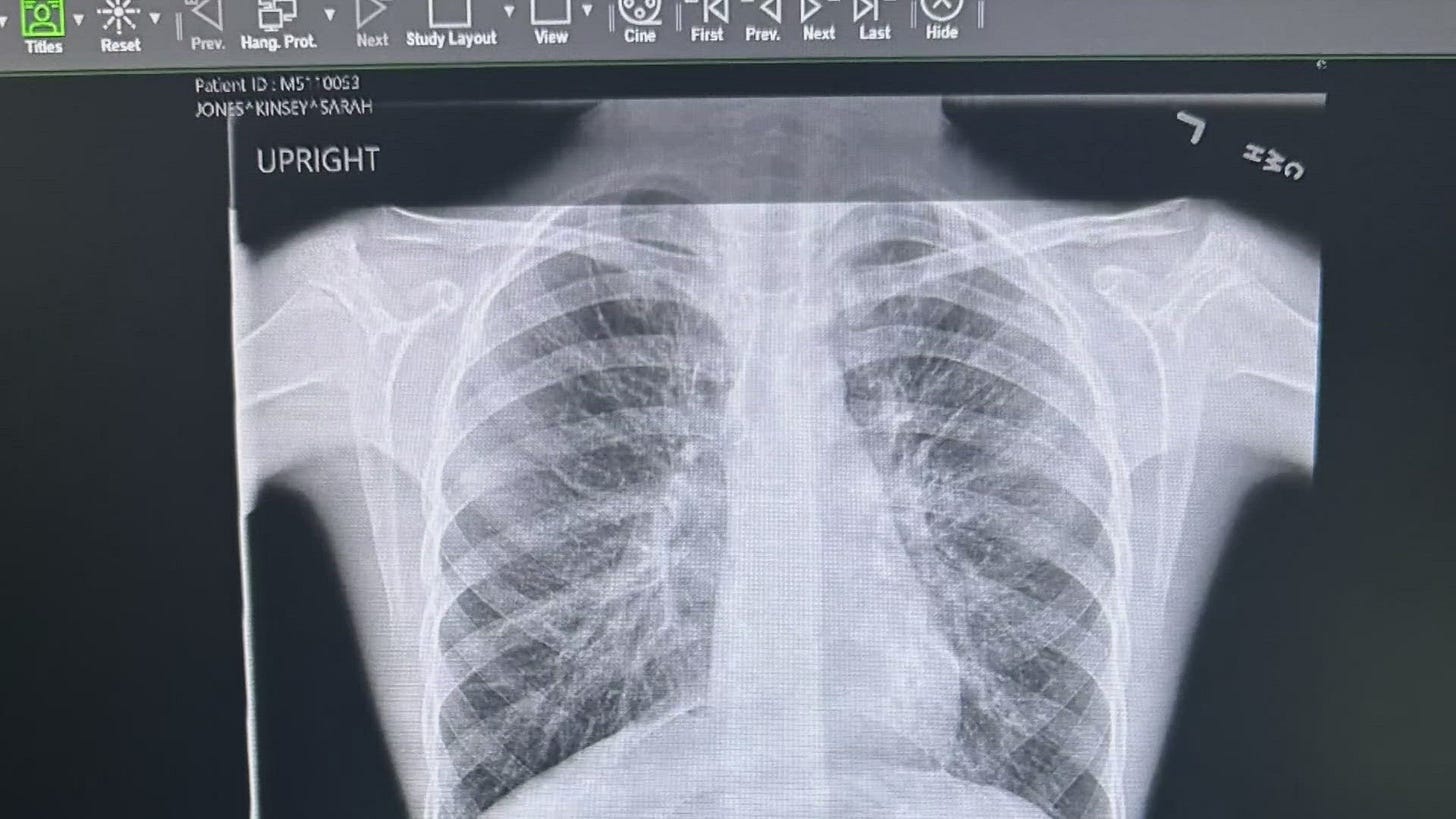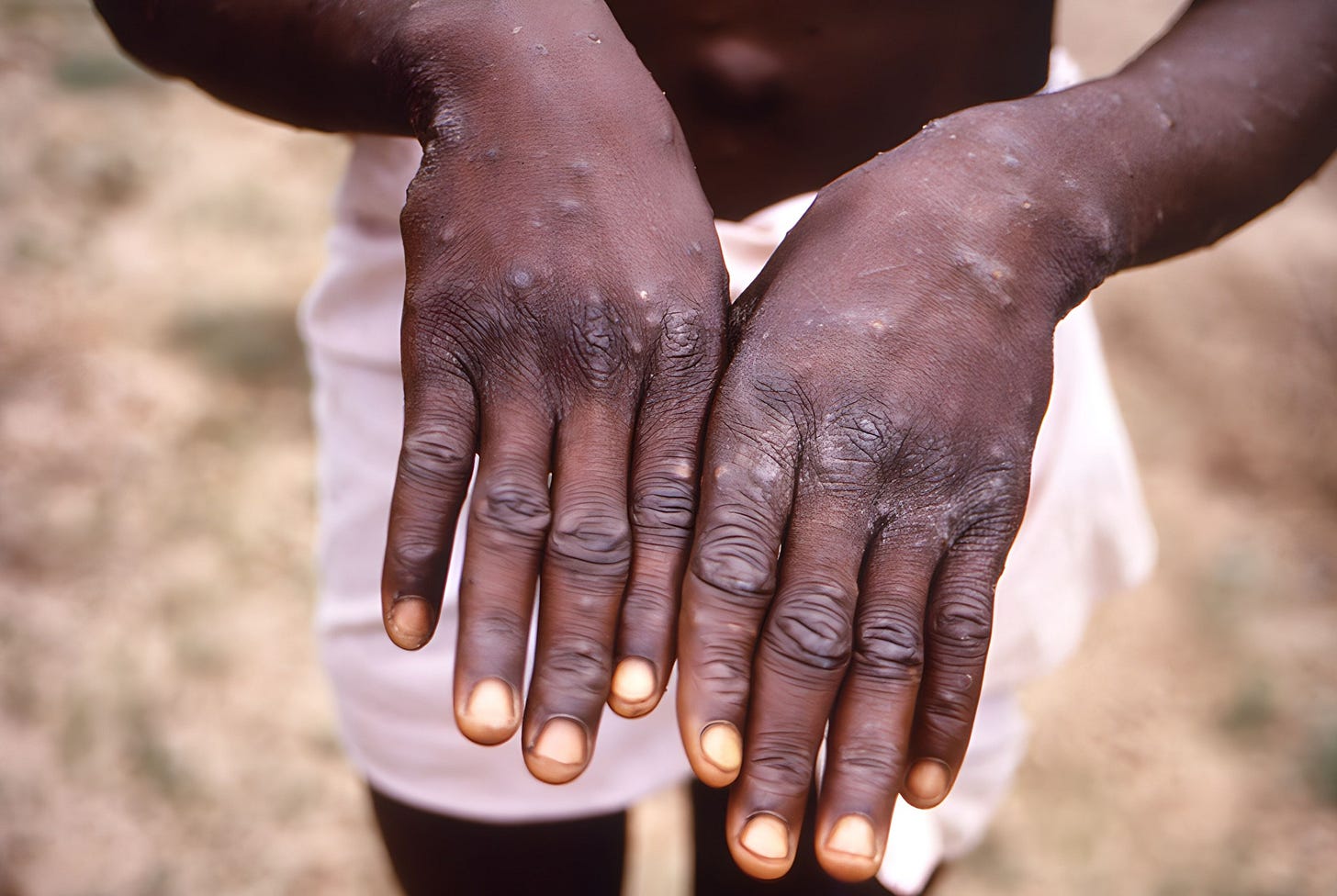Vital Signs: November 5th, 2024
🏥 CDC reports an unusual increase in bacteria that causes respiratory illness; 🦠 African health authorities warn MPox outbreak is not under control; and much more...
Welcome to Vital Signs, a quick weekly update on the most relevant global health news.
Top Diagnosis
Top Story of the Week

🏥 CDC reports an unusual increase in Mycoplasma Pneumoniae cases, leading to respiratory illness. Read Here.
The CDC reported an increase in Mycoplasma Pneumoniae cases in North Texas, near the Dallas-Fort Worth area. This bacteria is said to cause mild respiratory illness. Cook Children’s Medical Center doctors mentioned seeing “the highest number of cases in the last five years right now.”
Doctor’s Note: ℞ - “We don’t really know, but we have some theories,” Dr. Jason Terk, a pediatrician from Cook Children’s Medical Center, explained. “There’s a hypothesis that because of the lockdown, we have immunity debt. There’s been a lack of exposure to infectious diseases, and because of that, we’re seeing higher frequencies of them when they hit the community.”
This concept aligns with what I've been emphasizing in recent conferences: pandemic policies have had lasting, unintended consequences on our immune systems. The global surge in infectious, autoimmune, and allergic diseases appears to support the Hygiene Hypothesis. This hypothesis suggests that reduced exposure to pathogens—due to measures like lockdowns, sanitization, and reduced social interaction—has hindered the development of a robust immune response. By limiting exposure to everyday microbes, the immune system becomes less practiced and potentially more prone to overreaction, contributing to higher rates of immune-related diseases in the aftermath.
Pulse Check
The latest in Healthcare and Public Health

A patient with mpox in 1997 in the Democratic Republic of Congo. CDC/Image Point FR/BSIP/Universal Images Group via Getty Images (Credits: VOX Media) 🦠 African health authorities report that the MPox outbreak is still not under control. Read Here.
The African Union’s Centers for Disease Control and Prevention (Africa CDC) has issued an urgent call for global support in combating the Mpox outbreak across the continent. Leaders from Africa CDC have highlighted the potential for this outbreak to escalate into a health crisis of unprecedented scale, warning that it could develop into a pandemic even "more serious" than COVID-19 if left unchecked.
Doctor’s Note: ℞ - Since January 2022, the world has faced the largest Mpox outbreak in recorded history, with over 93,000 confirmed cases reported across 117 countries as of December 2023. While monkeypox had been primarily endemic to Central and West Africa, it was first identified in humans in the Democratic Republic of the Congo (DRC) in the 1970s. However, the recent global outbreak has transformed Mpox into a significant health crisis, especially severe in the DRC and neighboring areas.
The World Health Organization (WHO) declared this outbreak a "public health emergency of international concern" in August 2024, as a newer, more virulent variant known as Clade 1b emerged. This variant has demonstrated higher transmissibility and increased mortality, disproportionately impacting displaced and vulnerable populations in affected regions.

WHO Director-General Tedros in August 2024 (Credits: Reuters) Despite its serious implications, Mpox's transmissibility remains notably lower than that of diseases such as Tuberculosis, as Mpox is not airborne. This difference in transmission mode limits its potential for rapid, widespread dissemination, although the outbreak continues to present substantial challenges for public health systems, particularly in areas with limited resources.
💉 Pharma companies report low sales for RSV Vaccines. Read Here.
Multiple vaccine manufacturers reported low sales of their RSV vaccines in the third quarter as compared to the same period last year.
Doctor’s Note: ℞ - This situation highlights the distrust that I’ve previously addressed. The COVID Operation fundamentally altered the global health consciousness, shifting perspectives on health, institutions, and pharmaceuticals. Whether we acknowledge it or not, there’s an undeniable reality: public skepticism toward pharmaceutical companies and health organizations is at an all-time high. This erosion of trust is starting to be reflected in financial results.
It’s crucial that we begin to mend this divide and work to rebuild patient trust in healthcare systems. A concerted effort is needed to address the concerns and doubts that have emerged, focusing on transparency, accountability, and clear, compassionate communication. Only through these steps can we hope to restore confidence and support a healthier, more informed society.
Future Prognosis
Upcoming news, updates, trends, and developing stories to follow

🚜 US Department of Agriculture detected the first case of Avian Flu in pigs. Read Here.
USDA announced this past Wednesday, October 30th, that it had detected the first-ever case of H5N1 Bird Flu in pigs. They mentioned, however, that “tests have not identified any changes to the virus to suggest that it is more transmissible to humans” and that the diseased pig displayed “no symptoms".
Doctor’s Note: ℞ - It appears that we are entering an era marked by recurring "pandemics." The H5N1 avian influenza virus, though primarily affecting birds, continues to pose a periodic threat to humans, especially in cases involving direct contact with infected birds. Fortunately, widespread human-to-human transmission of H5N1 has not been documented, yet its high mortality rate in those infected remains a significant public health concern.
Despite occasional cases in humans, there is no evidence to suggest that the H5N1 virus can be contracted through consuming pork. The potential for zoonotic diseases to emerge and adapt emphasizes the need for vigilance and preparation, as we navigate this new age of heightened pandemic risk.






